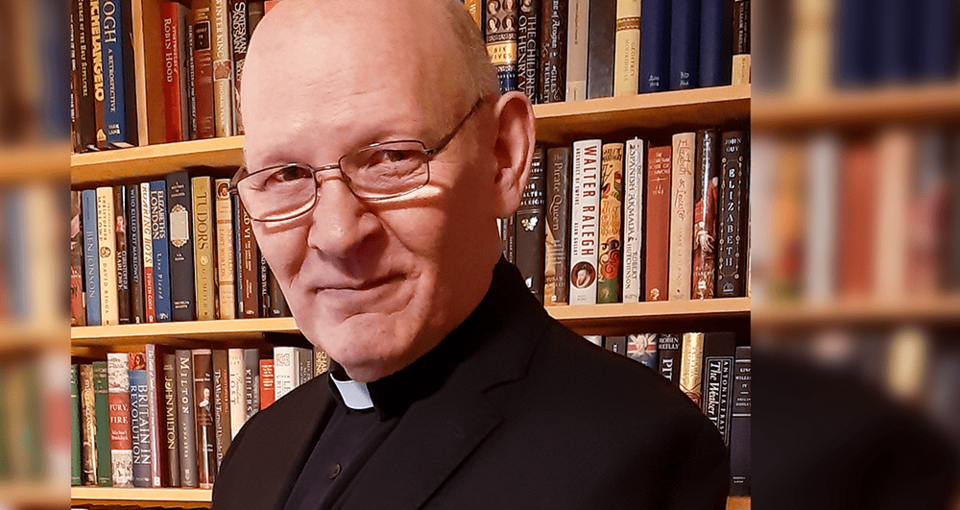The consequences of the United States Supreme Court’s overturning of Roe vs. Wade are still thundering on. It would be surprising if Canada went along the same path as its southern neighbour, but then most of us never thought we’d see Ottawa occupied by a coalition based on paranoia, hysteria, and fundamentalism.
As an Anglican priest, I’ve done a great deal of my work in the past few years on the front line of issues that we see debated in national politics: unemployment, poverty, housing, and social justice. Anybody who thinks that the church is irrelevant should spend some time taking phone calls in a parish office. Whether we can help or not, we’re often the place of call for the desperate.
That applies to abortion as well. What follows are two stories I wish every opponent of choice could read. The names of those involved have, of course, been changed.
Jenny called me because my personal number is the emergency contact for the church. She was hesitant, clearly nervous, and reluctant to be specific. Could we meet? Yes, of course. Two hours later, we’re in a Starbucks. It’s largely empty at 11 AM, so we have privacy. Her story gradually unfolds.
She’s from the Bible belt area of Niagara. Her background is Dutch, and her parents are Calvinist Christians. She began running away from home when she was 12 years old because he father beat her, and her mother refused to intervene.
“I think she hated it, but she was under his control. I heard her crying sometimes,” she says, ignoring her coffee and staring past me, as if she’s hesitant to make direct eye contact.
The pattern of fleeing and returning continued until she was 16, when the violence became intolerable. I ask whether she ever considered calling the police.
“I suppose I should. But there were cops in our church, in our community — it was all so enclosed. And I was frightened of being blamed. I don’t know …” and her voice trails off.
She found minimum-wage work in Hamilton. One night, after drinking too much, she went home to the apartment of a young man she worked with.
“I know, I know, I know,” she says, obviously frustrated with herself as much as with the situation. “He didn’t force himself on me, but—.” She pauses, embarrassed. “It was the first time I’d had sex.”
I mutter some words that are supposed to be supportive, and she understandably ignores them.
“I’m pregnant. I can’t go home. I’d have to stop work. I live in a tiny place. I don’t know how to look after myself, let alone a kid. As for adoption, that’s a crock. It’s not easy — there’s legal stuff, and I just can’t do it. I can’t do it!” And she cries.
I refer her to a wonderful nurse who can help this isolated, abused young woman — little more than a girl, really — to control her life and her future.
Becky comes to the church to meet. She was born in the United Kingdom and came to Toronto as a child. In fact, her mum and my dad were raised in the same part of London. She has two children, one of them with a disability, and their father fled the scene as soon as Becky told him she was pregnant again.
“No loss,” she says. “He was a bastard, and he hit me.” She’s putting on a brave face, but I can see that she’s terrified.
Anybody who dismisses the government as being pointless or a waste of money should know that Becky and countless like her can survive only due to social support and housing benefits. Even so, they’re limited, and she has to live in very challenging conditions.
“I just can’t have another child. I know I should never have gotten pregnant again but, well, you know, things happen. The last birth almost bloody killed me. I’ve got nothing, nowhere, and my body is ****ing broken!” She cries, the bravado blown away by the dark reality of it all. “Help me. Where do I go? What do I do?”
Both stories are far from unusual. But, in the final analysis, it’s not really even about that. It’s about someone being able to decide who she is, what she does, and where she goes. Simple, one would have thought. The Christian response, unlike that of the five Catholic Supreme Court judges who voted to overturn Roe vs. Wade, should simply be to support them.
Rev. Michael Coren is an award-winning Toronto-based columnist and author of 18 books, appears regularly on TV and radio, and is also an Anglican priest.

